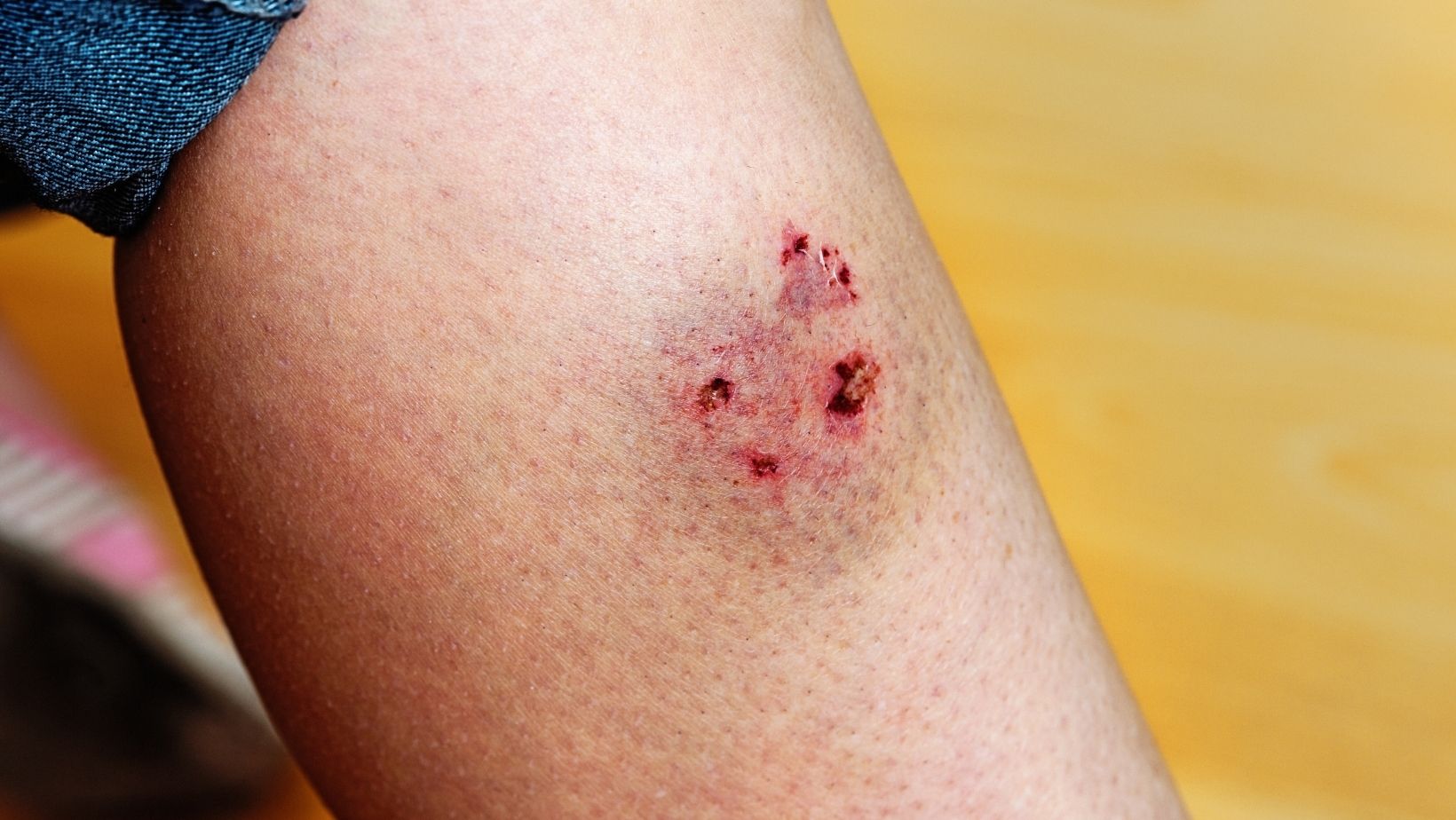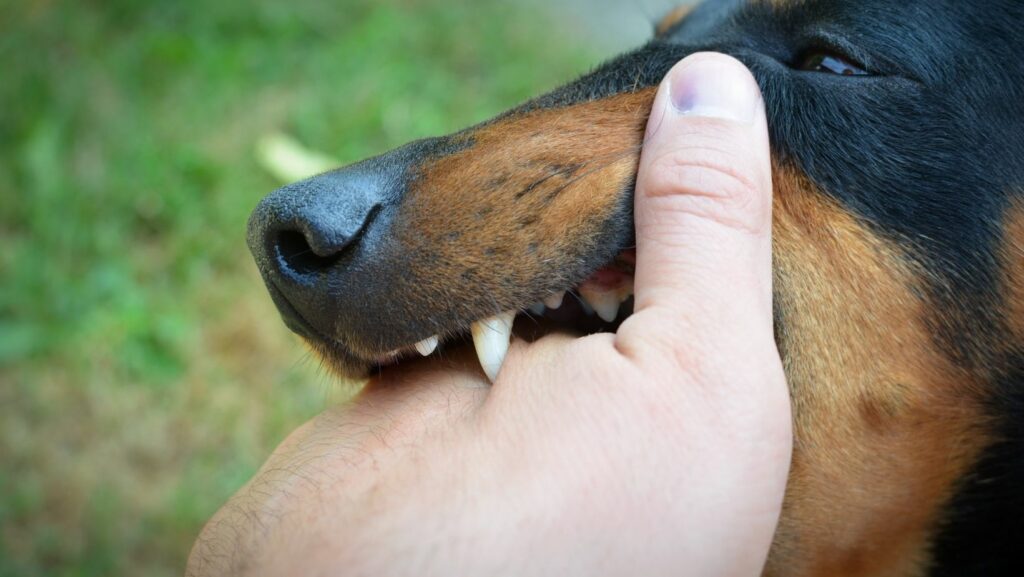Dog bites don’t always show their worst effects right away. At first, it might just seem like a small puncture or scratch. But the hidden risk comes later when swelling, redness, or pain starts to worsen instead of healing. That’s when a bite turns from a surface wound into a serious medical issue.
Infections from dog bites can lead to complications that require hospital stays or long-term care. Parents, neighbors, or even delivery workers might not realize how quickly things can change. If the bite happened in a public space or on someone’s property, legal help may be needed to sort out responsibility. That is why many people turn to experienced professionals like Valiente Mott injury attorneys when a simple bite becomes something much more serious.
Why Dog Bites Get Infected So Easily
Dog mouths carry bacteria that can transfer quickly through even a shallow bite. The force of a dog’s jaw drives bacteria deep beneath the skin, where it’s harder to treat. People often wash the wound and assume that’s enough. But hours later, signs like heat, swelling, and discharge may begin to appear.
If untreated, infections such as cellulitis or even sepsis can develop. Some people end up needing IV antibiotics or minor surgery to clean the wound properly. Early medical attention is key, even if the injury doesn’t seem severe at first. It’s better to be overly cautious than risk a worsening condition.
Signs You Shouldn’t Ignore
Infections from dog bites can escalate quickly. These symptoms may seem mild at first but often signal a deeper problem:

- Redness, Swelling, or Pus Around the Wound- These are classic signs that bacteria have entered the skin and are multiplying.
- Increasing Pain or Limited Movement- If the bite gets more painful over time or you can’t move the area well, the infection may be spreading.
- Fever, Fatigue, or Dizziness- Feeling unwell or lightheaded is your body’s way of warning you that the infection may be entering your bloodstream.
- Symptoms That Seem to Linger or Worsen- What looks like a scratch could hide serious bacteria like tetanus or Pasteurella—delayed care makes things worse.
Legal Responsibility in an Infection Case
Most states hold dog owners responsible when their pet bites someone, especially in public places or if the dog has a known history of aggression. But once infection sets in, the legal conversation changes. Now, it’s not just about the bite, but about the medical complications that followed. This opens up broader legal questions about damages and negligence.
In these cases, liability might extend to landlords, pet sitters, or businesses that failed to control the dog. If the wound became infected because the owner didn’t provide you with vaccination information, that adds another layer. Medical records, witness statements, and photographic evidence can all help support a strong claim. Having someone who understands how dog bite cases evolve is crucial.
The Role of Antibiotics and Follow-Up Care
Most bite wounds require more than just an urgent care visit. Antibiotics are often prescribed, and in some cases, treatment needs to continue for weeks. Follow-up care might include imaging to check for deep tissue damage. A single emergency room visit is often not the end of the story.
The costs add up quickly—doctor visits, medications, lost work time, and transportation. These are all recoverable damages in a legal case. Victims should document every step of their care, including prescriptions and return appointments. That record helps build a timeline of how the infection developed and how it affected your life.
Infections in Children and Older Adults
Children and seniors are especially vulnerable to infections from bites. Their immune systems either aren’t fully developed or are weakened due to age or other health issues. Even a small wound on a child’s arm can lead to complications like joint infections or blood poisoning. For older adults, recovery may take longer and carry greater risk.
These groups often need more aggressive treatment and monitoring. If the victim belongs to one of these groups, their care plan should reflect those added risks. Legal cases involving high-risk individuals can also result in higher compensation due to the level of harm. It’s important to communicate those vulnerabilities early in the legal process.
Why Rabies and Tetanus Shouldn’t Be Ignored
While rare, rabies is still a life-threatening concern in bite cases. If the dog’s vaccination status is unknown, you may need preventive treatment immediately. Tetanus is another serious risk, especially if the wound is deep or dirty. Both conditions require specific responses from healthcare providers.
Delays in treating either can be catastrophic. That is why dog owners must provide vaccination records and why bite victims should push for that information. It’s not just about what happened—it’s about what could happen if the situation isn’t taken seriously. These extra medical steps can become part of the damages you seek.
Collecting Evidence Even After Days Have Passed
Some people don’t seek help until days after the bite. That can make collecting evidence harder, but not impossible. Photos of the wound’s progression, appointment records, and even texts with the dog’s owner all count as documentation. Even social media posts about the bite can serve as proof.
It helps to keep a short daily journal of symptoms and how the infection is affecting your routine. These real-world details add weight to your claim. They paint a clearer picture of how things unfolded and how the bite changed your life. This kind of personal record can make your case much stronger.
Talking to a Lawyer Sooner Than Later
Many people wait too long to speak with a lawyer after a dog bite, assuming it’s only necessary if the case goes to court. But early legal advice helps protect your rights, especially when an infection adds layers of complexity. A lawyer can help gather records, connect you with the right medical experts, and push back against insurance companies that downplay infection risks. Getting someone on your side early can keep the situation from getting worse.
Even if you’re not sure you want to file a claim, a consultation can help you understand your options. You deserve to know whether someone else’s negligence caused your injury and whether you’re entitled to compensation. Having an advocate can take the weight off your shoulders during a stressful time. Healing should be your focus—let legal professionals handle the rest.

